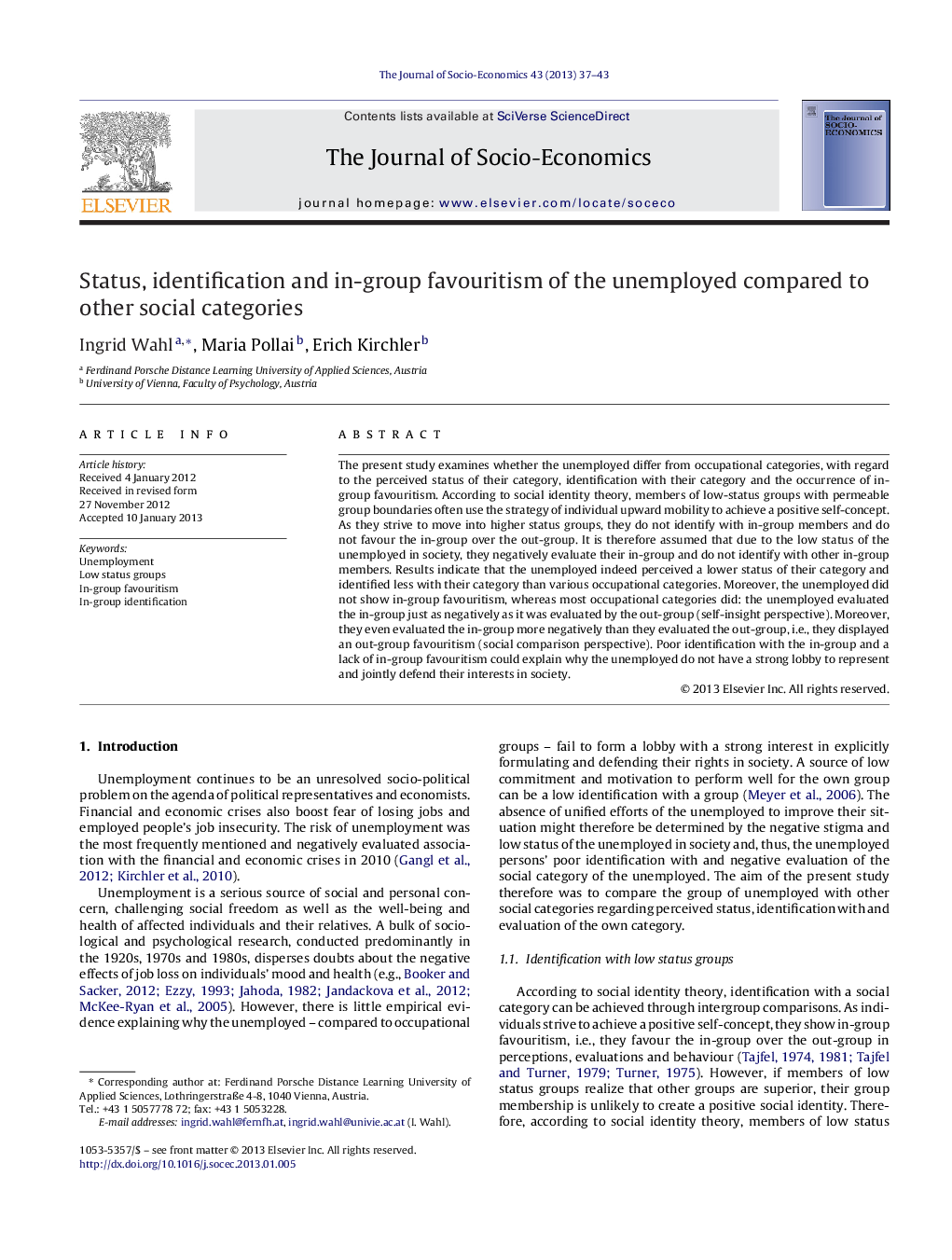| کد مقاله | کد نشریه | سال انتشار | مقاله انگلیسی | نسخه تمام متن |
|---|---|---|---|---|
| 970403 | 1479535 | 2013 | 7 صفحه PDF | دانلود رایگان |

The present study examines whether the unemployed differ from occupational categories, with regard to the perceived status of their category, identification with their category and the occurrence of in-group favouritism. According to social identity theory, members of low-status groups with permeable group boundaries often use the strategy of individual upward mobility to achieve a positive self-concept. As they strive to move into higher status groups, they do not identify with in-group members and do not favour the in-group over the out-group. It is therefore assumed that due to the low status of the unemployed in society, they negatively evaluate their in-group and do not identify with other in-group members. Results indicate that the unemployed indeed perceived a lower status of their category and identified less with their category than various occupational categories. Moreover, the unemployed did not show in-group favouritism, whereas most occupational categories did: the unemployed evaluated the in-group just as negatively as it was evaluated by the out-group (self-insight perspective). Moreover, they even evaluated the in-group more negatively than they evaluated the out-group, i.e., they displayed an out-group favouritism (social comparison perspective). Poor identification with the in-group and a lack of in-group favouritism could explain why the unemployed do not have a strong lobby to represent and jointly defend their interests in society.
► The unemployed perceived a lower status of their category.
► The unemployed identified less with their category than occupational categories.
► The unemployed did not show in-group favouritism, whereas occupational categories did.
Journal: The Journal of Socio-Economics - Volume 43, April 2013, Pages 37–43